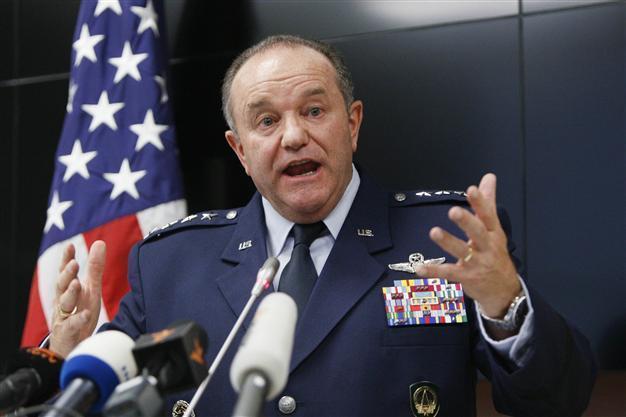NATO 'very concerned' by Russian military build-up in Crimea
KYIV - Agence France-Presse

U.S. General Philip Breedlove, NATO Supreme Allied Commander Europe, speaks during a news conference in Kiev, November 26, 2014. REUTERS Photo
NATO's top military commander warned Nov. 26 that Russia's "militarisation" of the annexed Crimea region could be used by Moscow to exert control across the whole Black Sea region."We are very concerned with the militarisation of Crimea," US General Philip Breedlove told a press conference in Kyiv.
"The capabilities that are being installed in Crimea will bring an effect on almost the entire Black Sea."
Breedlove, the commander of American forces in Europe, said that cruise and surface-to-air missiles installed on the peninsula, which Russia seized from Ukraine in March, would be "able to exert influence" over the strategic region.
He said that the US-led alliance was "watching for indications" amid fears over the possibility that Russia could move any of its nuclear arsenal to Crimea.
Russia's defence ministry said Wednesday that it had deployed a batch of 14 military jets to Crimea, as part of a squadron of 30 that will be stationed on the peninsula.
Breedlove was in Kyiv for high-level talks with Ukraine's leaders over the crisis that has sent the West's relations with Moscow to their lowest ebb since the Cold War.
Ukraine has stirred fresh Russian ire by stating it hopes to join the Western security bloc in the face of Russia's alleged backing for a separatist conflict that has cost over 4,300 lives since April. There seems little chance of the ex-Soviet state actually joining NATO anytime soon as secure borders and reforms to its ill-equipped army would usually be a prerequisite.
Breedlove said that the alliance was providing training for Ukraine's forces that will bring them closer to "NATO tactics, techniques and procedures" but insisted that any decision on the country becoming a member was for political leaders.
















